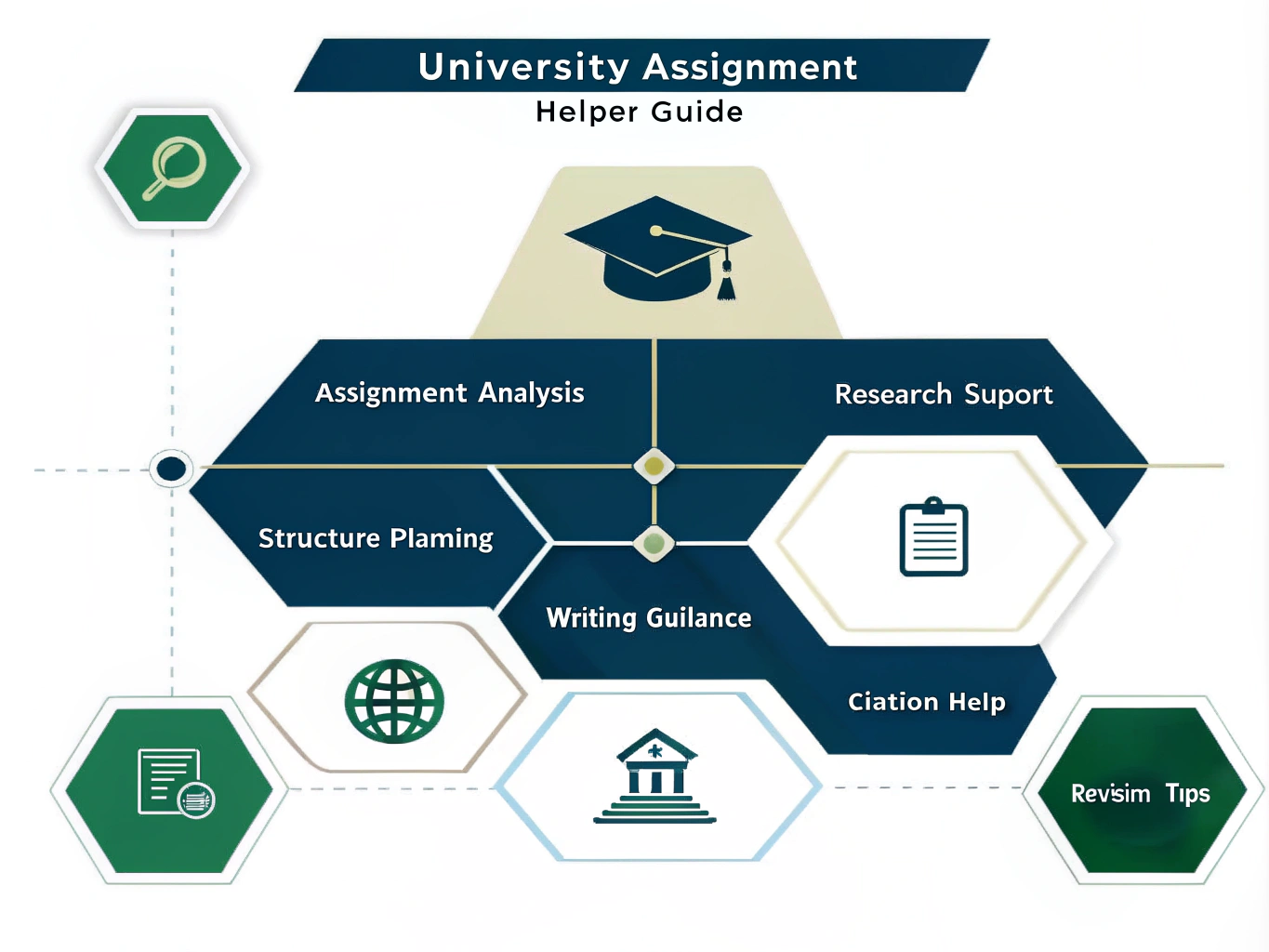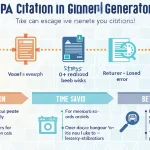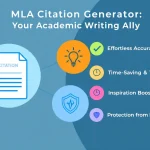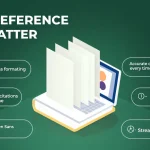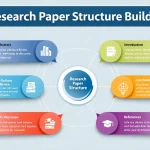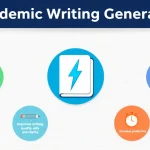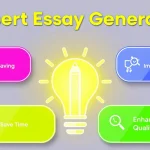University Assignment Helper
Is this tool helpful?
How to Use the University Assignment Helper Effectively
To make the most of the University Assignment Helper tool, follow these steps:
- Type of university assignment: Enter the specific type of assignment you need assistance with. For example, you might input “Literature review” or “Capstone project.”
- Subject or field of study: Specify the academic discipline relevant to your assignment. Sample inputs could be “Environmental Science” or “Medieval History.”
- Assignment instructions or prompt: Paste the full assignment guidelines provided by your instructor. This ensures the tool can offer tailored advice based on your specific requirements.
- Required citation style (Optional): If your assignment requires a particular citation format, enter it here. For instance, “Harvard” or “IEEE.”
- Required word count or page length (Optional): If specified, input the expected length of your assignment. This could be “2500” for word count or “10” for page length.
After filling in the required information, click the “Get Assignment Help” button. The tool will then generate comprehensive guidance tailored to your specific assignment needs.
Understanding the University Assignment Helper: Your Academic Companion
The University Assignment Helper is an innovative online tool designed to support students in navigating the complex world of academic writing and research. This powerful resource serves as a virtual academic advisor, offering personalized guidance on various aspects of assignment completion, from understanding requirements to final proofreading.
Purpose and Benefits
The primary purpose of this tool is to empower students with the knowledge and strategies needed to excel in their academic assignments. By providing step-by-step assistance, it aims to enhance students’ academic writing skills, research capabilities, and overall understanding of assignment requirements. The benefits of using this tool include:
- Improved comprehension of assignment instructions
- Enhanced research and source evaluation skills
- Better structuring and organization of ideas
- Refined academic writing techniques
- Proper citation and referencing practices
- Effective revision and proofreading strategies
Maximizing the Benefits of the University Assignment Helper
To fully leverage the capabilities of this tool, consider the following strategies:
1. Detailed Input for Personalized Guidance
The more specific information you provide about your assignment, the more tailored and valuable the advice will be. Take time to accurately fill in each field, especially the assignment instructions.
2. Early Engagement in the Assignment Process
Utilize the tool as soon as you receive your assignment. This early engagement allows you to plan effectively, allocate time for research, and develop a comprehensive outline before diving into the writing process.
3. Iterative Use Throughout the Assignment Journey
Don’t limit yourself to using the tool just once. As you progress through different stages of your assignment, revisit the tool for specific guidance on research, writing, or revision strategies.
4. Complement with Additional Resources
While the tool provides comprehensive guidance, combine its use with other academic resources such as your university’s writing center, library services, and instructor office hours for a well-rounded approach to assignment completion.
Addressing User Needs and Solving Academic Challenges
The University Assignment Helper tackles various common challenges faced by students:
1. Decoding Complex Assignment Instructions
Many students struggle with interpreting assignment guidelines. The tool breaks down instructions into manageable components, helping you understand the key objectives and requirements. For instance, if you’re tasked with a comparative analysis essay in Political Science, the tool might suggest:
- Identify the main themes or policies to be compared
- Develop criteria for comparison (e.g., historical context, implementation, outcomes)
- Structure your essay with clear sections for each comparison point
- Conclude with a synthesis of your findings and their implications
2. Effective Research Strategies
Finding credible sources can be overwhelming. The tool provides tailored research strategies based on your assignment type and subject. For a Biology research paper on climate change impacts on marine ecosystems, it might recommend:
- Utilizing scientific databases like PubMed and Web of Science
- Focusing on peer-reviewed journals such as “Nature” or “Science”
- Exploring reports from reputable organizations like NOAA or IPCC
- Evaluating the recency and relevance of sources to ensure up-to-date information
3. Structuring and Outlining
Organizing ideas coherently is crucial for academic success. The tool assists in creating logical outlines tailored to your assignment type. For an argumentative essay on the ethics of artificial intelligence in healthcare, it might suggest this structure:
- Introduction
- Hook: Intriguing statistic on AI in healthcare
- Background: Brief overview of AI applications in medicine
- Thesis: Statement on the ethical implications of AI in healthcare
- Body Paragraph 1: Benefits of AI in healthcare
- Improved diagnosis accuracy
- Enhanced treatment personalization
- Increased efficiency in patient care
- Body Paragraph 2: Ethical concerns
- Patient privacy and data security
- Potential for bias in AI algorithms
- Reduced human touch in patient care
- Body Paragraph 3: Balancing benefits and concerns
- Regulatory frameworks for AI in healthcare
- Importance of human oversight
- Ethical guidelines for AI development and implementation
- Conclusion
- Recap of main points
- Call to action for responsible AI integration in healthcare
4. Academic Writing Guidance
The tool offers advice on maintaining an appropriate academic tone and style. It might provide tips such as:
- Use formal language and avoid colloquialisms
- Employ third-person perspective for objectivity
- Incorporate transitional phrases to enhance flow between paragraphs
- Balance your argument with counterarguments and rebuttals
5. Citation and Referencing Support
Proper citation is crucial in academic writing. The tool offers guidance on various citation styles. For an APA-style psychology paper, it might advise:
- In-text citations: (Author, Year) or Author (Year)
- Direct quotes: Include page number (Author, Year, p. X)
- Reference list format:
Author, A. A. (Year). Title of work. Publisher. - Alphabetize references by the first author’s last name
6. Revision and Proofreading Strategies
The tool emphasizes the importance of thorough revision and proofreading. It might suggest techniques like:
- Read your work aloud to catch awkward phrasing
- Use text-to-speech software for a different perspective
- Create a personalized editing checklist (e.g., common grammar mistakes, overused words)
- Take breaks between writing and editing to approach your work with fresh eyes
Practical Applications and Use Cases
The University Assignment Helper caters to a wide range of academic scenarios. Here are some practical applications:
1. Tackling a Complex Research Paper
Imagine you’re a third-year Environmental Science student tasked with writing a 4000-word research paper on sustainable urban planning. The tool would guide you through:
- Defining your research question (e.g., “How can green infrastructure be effectively integrated into urban planning to mitigate climate change impacts?”)
- Identifying key areas to research (urban heat island effect, stormwater management, biodiversity in urban spaces)
- Suggesting credible sources (academic journals, urban planning reports, case studies of sustainable cities)
- Structuring your paper (introduction, literature review, methodology, findings, discussion, conclusion)
- Incorporating data visualization (graphs showing temperature reduction in areas with green spaces)
- Proper citation of diverse sources (scientific papers, government reports, interviews with urban planners)
2. Crafting a Persuasive Argumentative Essay
For a sophomore in a Political Science course writing a 2500-word argumentative essay on the impact of social media on political polarization, the tool would assist with:
- Formulating a clear thesis statement
- Researching both sides of the argument (echo chambers vs. increased political engagement)
- Structuring the essay for maximum persuasive impact
- Integrating statistical evidence and expert opinions
- Addressing and refuting counterarguments
- Concluding with policy implications or suggestions for mitigating negative impacts
3. Developing a Literature Review
A graduate student in Psychology working on a literature review on the long-term effects of childhood trauma would benefit from guidance on:
- Defining the scope of the review (e.g., focusing on studies from the past 15 years)
- Organizing the review (thematic vs. chronological approach)
- Critically analyzing and synthesizing findings from multiple studies
- Identifying gaps in current research
- Proper use of meta-analysis techniques
- Discussing implications for future research and clinical practice
4. Preparing a Case Study Analysis
For a Business Management student analyzing a case study on a company’s expansion into international markets, the tool would provide support in:
- Identifying key issues and challenges faced by the company
- Applying relevant theoretical frameworks (e.g., PESTLE analysis, Porter’s Five Forces)
- Structuring the analysis (company background, problem identification, alternative solutions, recommendations)
- Incorporating financial data and market statistics to support arguments
- Developing actionable recommendations based on the analysis
- Creating a professional executive summary
Frequently Asked Questions (FAQ)
1. Can the University Assignment Helper write my assignment for me?
No, the tool is designed to provide guidance and support, not to write assignments. Its purpose is to help you develop your academic skills and complete assignments independently.
2. How often should I use the University Assignment Helper during my assignment process?
It’s beneficial to use the tool at various stages of your assignment – from initial planning and research to writing and revision. Regular use can help you stay on track and address challenges as they arise.
3. Is the advice provided by the tool specific to my university’s requirements?
The tool offers general academic guidance. Always cross-reference the advice with your specific university guidelines and consult with your instructor for course-specific requirements.
4. Can the University Assignment Helper help with group projects?
Yes, the tool can provide guidance on structuring group work, dividing tasks, and ensuring coherence in collaborative assignments. However, it’s designed for individual use, so each group member should input their specific part of the project.
5. Does the tool provide subject-specific advice?
The tool offers general academic writing and research advice applicable across disciplines. While it considers your subject area, for highly specialized topics, additional subject-specific resources may be necessary.
6. How can I use the tool to improve my academic writing skills over time?
Regularly using the tool and implementing its advice can help you internalize good academic practices. Pay attention to recurring suggestions and work on incorporating these into your writing process.
7. Can the University Assignment Helper help with formatting my paper?
The tool provides general formatting advice based on common academic standards. However, for specific formatting requirements, always refer to your assignment guidelines or university style guide.
8. Is the tool suitable for both undergraduate and postgraduate students?
Yes, the University Assignment Helper is designed to assist students at all levels of higher education. It adapts its advice based on the complexity and requirements of your specific assignment.
9. How can I best use the tool’s research advice?
Use the research strategies suggested by the tool as a starting point. Combine these with your library’s resources and databases, and don’t hesitate to seek help from librarians for more specialized research needs.
10. Can the tool help me if I’m struggling with writer’s block?
Yes, the tool can provide strategies to overcome writer’s block, such as freewriting exercises, mind mapping techniques, or suggesting alternative approaches to your topic. Remember, the key is to start writing, even if it’s not perfect initially.
By leveraging the University Assignment Helper effectively, you can enhance your academic performance, develop crucial research and writing skills, and approach your assignments with greater confidence and clarity.
Important Disclaimer
The calculations, results, and content provided by our tools are not guaranteed to be accurate, complete, or reliable. Users are responsible for verifying and interpreting the results. Our content and tools may contain errors, biases, or inconsistencies. We reserve the right to save inputs and outputs from our tools for the purposes of error debugging, bias identification, and performance improvement. External companies providing AI models used in our tools may also save and process data in accordance with their own policies. By using our tools, you consent to this data collection and processing. We reserve the right to limit the usage of our tools based on current usability factors. By using our tools, you acknowledge that you have read, understood, and agreed to this disclaimer. You accept the inherent risks and limitations associated with the use of our tools and services.
